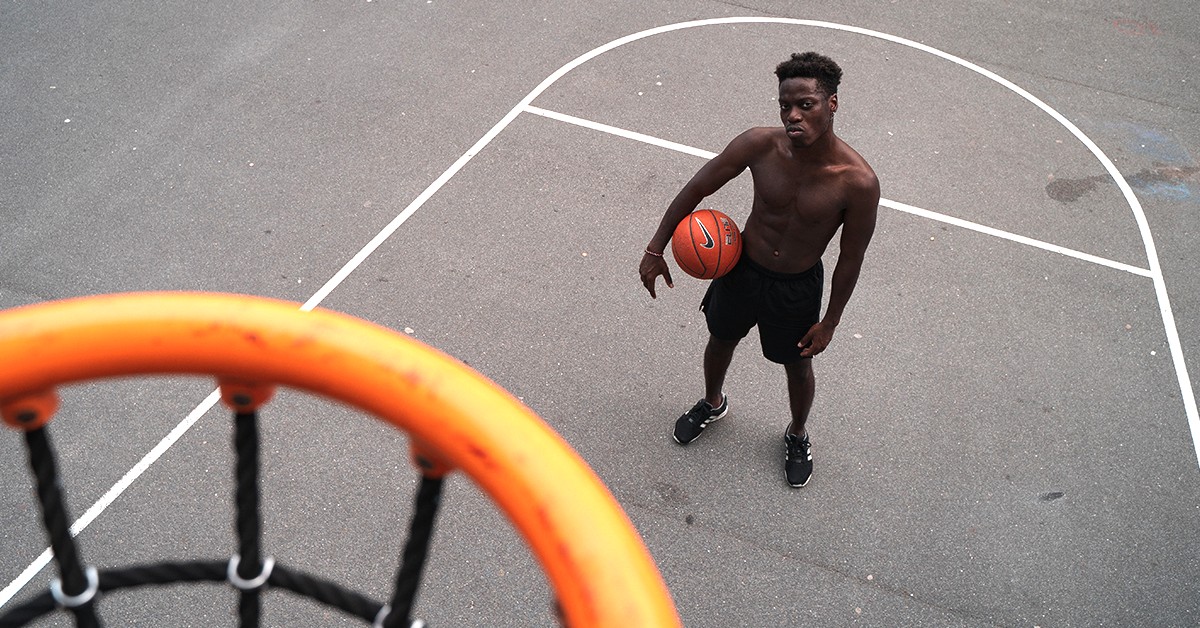
Nature or nurture? Are champions born or made? The age old debate. I want to throw a fresh light on it. To me, this argument has always been spurious. Accepting that talent is solely attributed to nature would bring fate into the equation and admitting that nature dictates your life story is unacceptable to me. We write our own life stories. We choose. Resigning oneself to the fact that nature plays a greater part than nurture is akin to hanging your head and sighing “It’s no use.”
That alone is enough for me to reject this premise. But the issue cuts a lot deeper. There are instances of physical prodigies who show a lot of promise at an early age and seem to have an innate ability that belies their age. And there are a lot of families and communities which can boast of having a higher than an average number of champion caliber athletes, suggesting that place of birth and upbringing have a big hand in shaping one’s destiny.
We like to think that champions triumph because of their hard work, dedication, perseverance, and resilience. We don’t want to admit that there are factors out of our control that can influence success. That being said, nurturing plays a huge part in deciding who makes it and who comes up short.
At the most, what nature does is it makes you more predisposed to succeed at something, by making you a little faster or quicker or cleverer. Nurture refers to the upbringing and community, which surrounds a person. You are born with natural capabilities and your surroundings shape you, but there is another factor which is often ignored – inner drive. A lot of athletes have natural talent, had ample supporting structure but lacked motivation or flexibility of thought to make the jump from good to great.
At the most, what nature can do is predispose a person to have a good base to develop a set of skills better than others. There is a limit to how good nature can make you, at some point you have to pick up the baton and charge ahead on the merits of your hard work and intelligence. When the nature vs nurture debate is discussed, it’s often overlooked how many early child prodigies have peaked early only to fizzle out. Bunch of high fliers in the NBA, touted as the next Jordan because of their dazzling dunks, remain just high fliers.
There is a crucial role played by nature in giving you a leg up. While the initial advantages given by nature only make for a small head start, the gap mushrooms and expands with time to the point where you can’t even attribute it to the small gap which initially separated you with the competition.
Picture a one cm gap on a scale, between 0 and 1. It’s tiny and minuscule. But essentially there is a difference of 100% between them. With time, the gap expands exponentially and the initial head start can make a difference of a mile. Here’s how that happens:
At junior level, the kid who shows more promise, even if it it’s more only by a hair, gets more opportunities to develop his/her talent. Those kids are given a chance to practice more, participate in a more competitive environment, and they get to place more priority on sports. The small difference, which separated the kids is used to judge them and the gap is further increased because one group is given a chance to hone their talents while the other has to take a back seat.
We encourage those who show a bit more promise and write off those who don’t bloom early. That is one way absence of nurturing can act as a constraint. On the other hand, there are some who are blessed with so much talent Being born a champion may stop you from becoming one. There are innumerable stars who never became superstars because their natural talent got in their way. Tracy McGrady is a case in point.
McGrady’s former coach, JeffVan Gundy estimated McGrady at “probably 1,000 hours of practice,” which would make him one-tenth of Gladwell’s rule. Van Gundy went on to say that T-Mac “should be a Hall of Fame player. His talent was otherworldly,” Houston Rockets general manager Daryl Morey said, “I do think [that ability] got in the way of Tracy’s development. Much of the game was so easy — you see this in the AAU level, where they have freakishly talented players,” he continued. “When it’s that easy to dominate at that young age because of your physical tools — his wingspan was freakish, his size was enormous, his IQ — my sense was, all that did get in the way of Tracy reaching his highest heights.”
McGrady ended the last season languishing on the bench of the San Antonio Spurs. As you can see, having too much talent can also come in the way of you realizing your potential. Having too much talent without a nurturing system around you can also hold you back. It is only when a combination of nature and nurture meet in the presence of motivation and intelligence that a true champion is born.
Warning: Undefined array key "preview" in /home/dh_gq5vzm/sidbreakball.com/wp-content/plugins/oxygen/component-framework/components/classes/comment-form.class.php on line 79